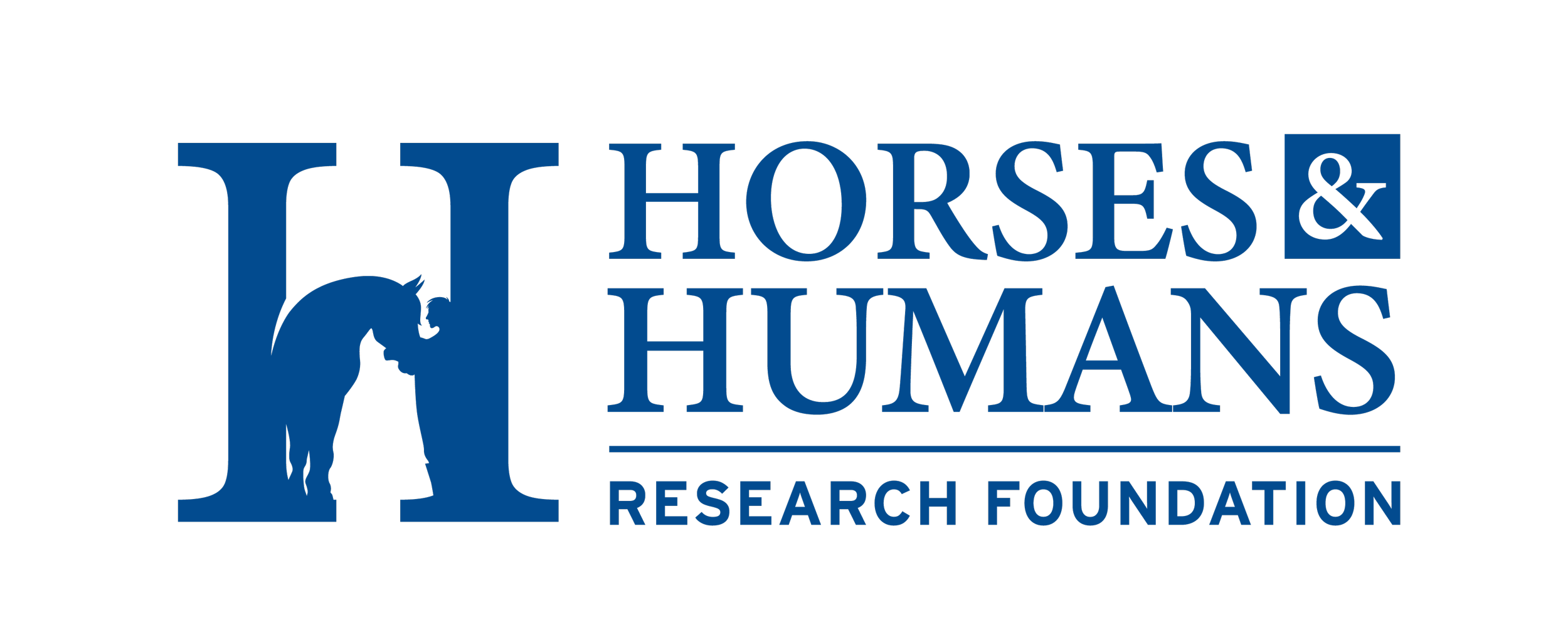Horses and Humans Research Foundation (HHRF) Announces New Strategic Updates and Leadership Changes
Chagrin Falls, OH – April 21, 2020 – Horses and Humans Research Foundation (HHRF), a 501(c)3 organization who funds research on the horse-human interactions, has announced that given the current COVID-19 impact on equine facilities and research activities, as well as the current state of the global economy, it will defer all 2020 grant awards until 2021 and pause their annual Request for Proposals that would normally be issued around this time each year.
In lieu of reviewing grant submissions this spring that highlight evidence-based studies of the horse-human relationship and its impact on health and wellness as has been customary practice for over 15 years, HHRF is investing time in evaluating strategies to advance its mission forward in new and innovative ways.
With a specific focus on trauma care for the grant years of 2020-2021, one significant addition to the organization is a newly formed Education and Communications Committee. Comprised of an elite team of volunteers ranging from medical clinicians, academic faculty, public health and social service professionals, this Committee joins forces with some of the nation’s most respected thought leaders within the equine assisted learning and equine assisted therapy field. This new committee will provide strategic planning support and policy oversight to ensure focus and direction of educational programs and dissemination of “science into the stable” so those facilitating this great work have the benefit of the research that has been and is being completed all the time.
HHRF is also taking this opportunity to create new strategic partnerships to leverage synergies, expand its global impact by building relationships outside the United States, and widen its donor base by offering value to an increased number of stakeholders in the future. Much of this value will come in the form of education and integration of knowledge by bridging the gap between the collected data on outcomes reported from intervention studies and then translating and sharing with the practitioners working with the many populations who benefit from equine-assisted activities and therapies.
The organization is also announcing the departure of Ken Boyden as their Executive Director. “We are appreciative of Ken’s contribution to the organization for the past four years and his leadership has positioned us for our next phase of growth,” states Board President, Evelyn McKelvie. The Board is developing a Task Force to begin the process of selecting a new Executive Director.








